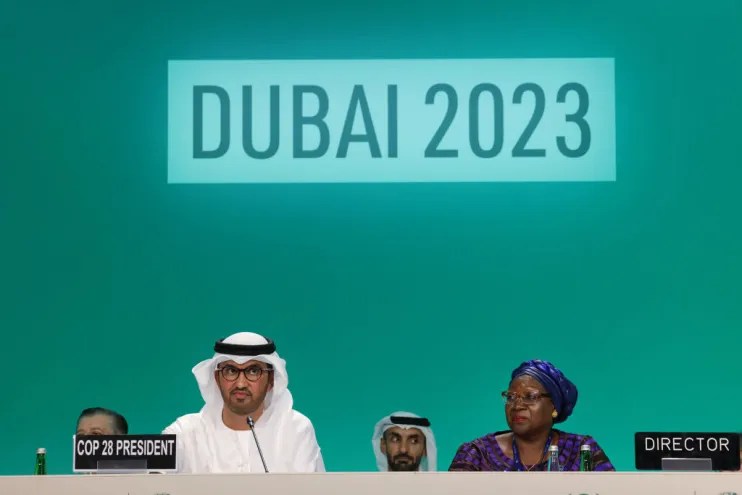Lessons from the final day of COP28 and what happens next

The final day of COP28 from Dubai has drawn to a close but the wait for its legacy has not.
In excess of 70,000 attendees have swarmed Expo City and now that the emissions stocktaking is over, the debrief of COP28 itself can begin.
Far from the high point of Paris 2015 which established the 1.5 degree global warming benchmark, COP28 will no doubt be best remembered for the sense of unease over a strong polluter presence and influence out in the desert.
The final and arguably most important development left to come will be the publication of the finalised climate change summit agreement, which is now expected tomorrow morning.
But the summit’s last day had one or two moments of intrigue before the bell rung.
“Outrageous dereliction of leadership”
UK climate change minister Graham Stuart returned to London late last night, leaving attendees from a number of prominent climate change action groups far from happy.
Andrew, who had previously persuaded the COP presidency to allow the UK to have a more significant role in the talks on the draft text, journeyed back in time for the House of Commons Rwanda vote this evening and will then hot-tail back to Dubai to try and catch the summit text’s publication.
This translates to a journey of around 6,313 miles in just over one day.
Rebecca Newsom, of Greenpeace, told the Guardian Stuart’s departure was an “outrageous dereliction of leadership”.
“This is the moment when we need to see bold political commitments to unlock the gridlock on the text,” she added.
Chris Skidmore, the Tory MP who wrote a review of the government’s net zero policies, said: “The decisions taken at this COP are far more important and vital for the future of all nations than the outcome of a vote tonight that will have little or no impact in the long term.”
Behind closed doors
As the wait for the draft text to become full realised tracks on, here is what was said in a private meeting at the summit last night.
Perhaps unsurprisingly, Saudi Arabia and Qatar both offered clear opposition to tougher language on fossil fuels, with the latter saying the text impacts the “sovereign right” for sustainable development. Bolivia also added that the text cannot prescribe country actions since it is based on a voluntary system.
The European Union and the US, along with other states representing international coalitions, were staunchly on the other side of this line, arguing that the language did not go anywhere near far enough.
Others, including Cuba, China and India, re-affirmed points including that there should not be a reference to global carbon emissions peaking in 2025 and that it must be written that rich nations must act on climate first and helper poorer nations in the meantime.